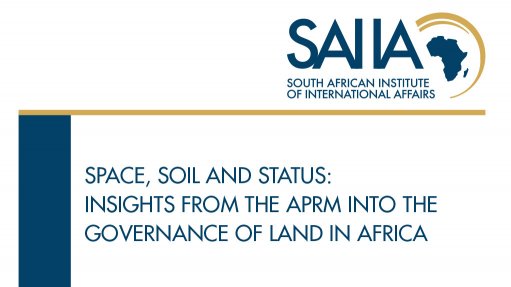
Land is central to Africa’s fortunes, and thus has occupied a prominent place in the inquiries of Africa’s home-grown governance review system, the African Peer Review Mechanism (APRM). This paper interrogates what the APRM’s reports from 10 participating countries have had to say on the land issue.
Land is recognised, by the APRM and by the continent’s governments and supranational authorities, as a key issue for Africa’s future. It is critical for both agricultural and non-agricultural development, and to accommodate human settlement.
The key, overarching challenge concerns tenure security. Land in Africa tends to be held through hybridised arrangements, in which formal, statutory systems exist alongside customary or other informal systems. The former place landholding, in theory, under a clearly defined legal order, which in turn makes it suitable as collateral for business endeavours and an asset to be leveraged for developmental purposes. This has led to calls for the formalisation of land titles across the continent. In practice, however, the weaknesses of the continent’s state system make this a doubtful prospect at present.
This paper argues that a better option, at least as an interim measure, would be to strive for an adaptation of the continent’s informal systems of landholding, with a view to giving them a degree of legal force.
Paper by SAIIA